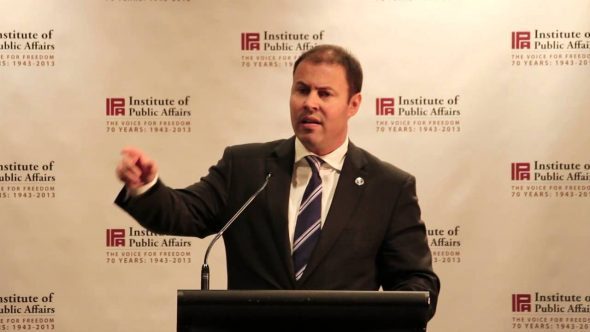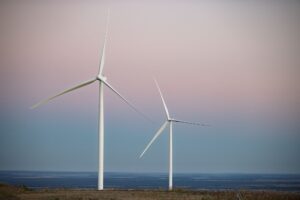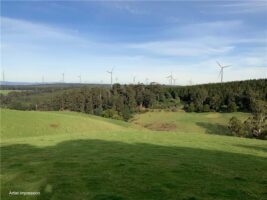It’s been more than a year since Malcolm Turnbull replaced Tony Abbott as head of the Coalition and as prime minister of Australia, but there is still no sign that the policy grip held by the ultra conservative “think tank”, the Institute of Public Affairs, has weakened.
The response by the Coalition government to the retirement of coal inquiry – and to the latest outages in South Australia – were as predictable as they were disappointing.
They confirmed that in a Trumpian world, dubbed in some quarters as “post truth”, anything goes.
The market operator and the owner of the network that caused Thursday’s outages made it very clear that it had nothing whatsoever to do with wind energy. But that didn’t stop energy minister Josh Frydenberg using it as an excuse to attack renewable energy, particularly state-based targets. “This is a disaster and we just had another wake-up call,” he told parliament.

The Coalition also suffers from selective hearing, or selective reading, in their response to the coal inquiry. Their ratification of Paris locks the country into a rapid decarbonisation of its energy sector, presuming it is taking the target seriously.
But of the 103 submissions made to the inquiry, the overwhelming majority of which supported the managed exit from coal, the Coalition cited just four, and gave the most prominence to the submission from the IPA.
Mostly, it is an exercise – mastered by climate denying astro-turfers and think tanks, such as the IPA – of gathering a host of misleading information and presenting it as proof of something, in this case that wind and solar don’t work.
The IPA submission beats its usual drum about wanting the renewable energy target scrapped, the Clean Energy Finance Corporation and the Australian Renewable Energy Agency abolished, and even suggests BHP should build a nuclear power plant at its Olympic Dam mine.
The Coalition, for instance, quotes the IPA as saying that Germany has reached “critical” mass of more than 30 per cent of its energy being sourced by renewables. So much for all the independent reports, indeed even the International Energy Agency, which say a far higher global share of renewables will be needed to meet the 2°C target.
The Coalition also quotes the IEA saying “Germany now has the second highest residential electricity prices in Europe (just behind wind-rich Denmark)… comprised of over 45 per cent taxes and charges.”
Both Denmark and Germany – like South Australia – have long had more expensive electricity prices than elsewhere. This is the result of having to rely on costly fuel imports – in Germany’s case oil, gas, black coal and uranium – which has been a driving source in lowering costs and improving energy security by generating their own energy.
And yes, 45 per cent of a household bill in Germany is made up of taxes. But most of these taxes have nothing to do with energy. Germany – and Denmark – simply chooses to use electricity as a tax revenue source. That money is used to build schools, swimming pools, public transport, etc.
Business electricity prices have slumped sharply in the last 10 years, thanks to the fall in wholesale electricity prices.
The IPA devoted two pages to Germany, mostly a collection of the typical myth-making about Germany’s Energiewende that has been a target of the fossil fuel industry, the nuclear machine, and conservatives.
Each of these myths have been rebutted time and again, but as George Monbiot points out in his frightening assessment of the Trump transition team, the use of misinformation has been a tactic used for decades by right-wing think tanks (such as the IPA) and astro-turfers in their fight against climate science.
Monbiot describes the machine and “its purpose to portray the interests of billionaires as the interests of the common people, to wage war against trade unions and beat down attempts to regulate business and tax the very rich. Now the people who helped run this machine are shaping the government.”
In the US, many of these staffers are now taking positions in the Trump administration. But in Australia, the government seems no less influenced by what Monbiot describes as the “constant feed of confected scares about unions, tax and regulation drummed up by groups that won’t reveal their interests.”
Frydenberg himself picked up on one of the German energiewende myths in a much-derided speech at the ANU earlier this week. Germany, he said, can import power from many other countries, including nuclear power from France and coal from Poland.
The inference is clear, but Germany remains a net exporter, and right now it is the likes of nuclear dependent France that rely most heavily on imports. Even in 2015, France imported twice as much from Germany as it exported.
Now, France is scrambling to source enough energy to meet its own needs because more than one-third of its nuclear fleet has been sidelined due to safety concerns. It is warning of soaring prices and rolling blackouts in the coming weeks.
The Coalition’s antediluvian response to events in South Australia and the issues of coal generation and wind and solar means that the immediate future of Australia’s energy policy will be heavily dependent on the outcome of chief scientist Alan Finkel’s review of the National Electricity Market.
What these recent events show is that Australia’s grid is over-priced, dumb, too focused on centralised generation and too vulnerable to all sorts of risk – bushfires, storms, unexplained outages and equipment failures.
The hope is that Finkel and his team recognise this and try to talk some sense into the government and its advisors.
An excellent new analysis from US-based investment bank Craig-Hallum sums up the situation nicely: “Right now we believe that too many investors have their bets placed long on 19th century and short 21st century technology.”
And that goes for politicians as well as investors. It is not surprising that Craig-Hallum focuses a lot on what is happening in Australia, where the costs of new technology have an even greater advantage over incumbent assets than virtually anywhere else in the world.
“The shift to a smart grid is about integration, adaptability, and efficiency,” the report concludes. “This takes place across the grid, with utility power production, energy transmission, and behind the meter consumption all shifting to allow easier exchange of information and adaptability to fluctuation conditions.
“Generation becomes more distributed and utilises solar PV and wind to reduce base and peak load; transmission load is reduced by distributed generation and use of storage for load shifting and stabilization; and consumption utilizes distributed generation, storage, and smart systems to reduce usage and rates by lessening demand spikes.
“Via modern communication between grid segments, demand and supply variations can be transmitted in real time, allowing smart storage, generation, transmission, and consumption systems to adjust for maximum return and stability.
“Eventually this will allow for shifts to new tech with increased power usage (electrification of transportation, heating, and other fossil fuel powered services), while still lessening global impact due to an efficient and flexible grid based on clean energy sources.”
Let’s hope that Finkel grasps the significance and the opportunities, and can try to deflect the Coalition’s deep-rooted thrall with the IPA.







